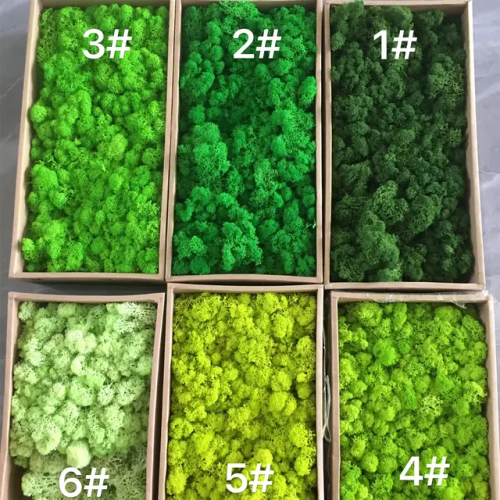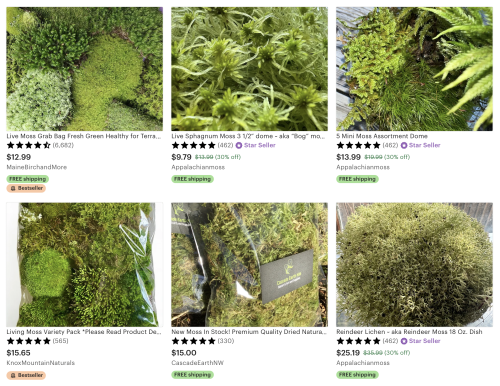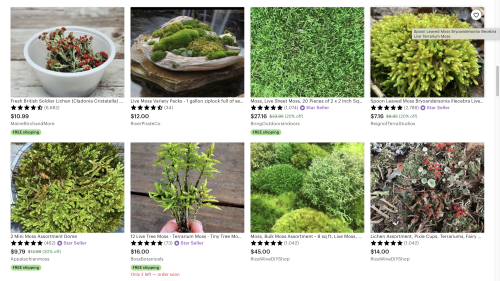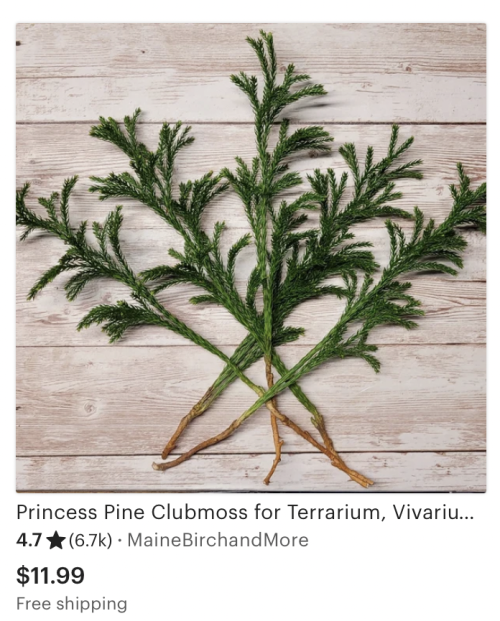trailsandt
Walk for life on the path not taken
73 posts
Latest Posts by trailsandt
Just This !
Ne pas prendre la vie trop au sérieux... Un après midi entre amis...
Making more $$$ from practicing medicine is NOT better health care. That is just an elitist way of rationing healthcare. Pursuit of the almighty unbridaled profit $ is destroying this country.

10/04/2025 Doctor Beverly Crusher @SpaceDocMom Incoming Transmission…
Capitalism and good health care do not mix. emojis: black heart, blue heart, masked, spoon
Kinda cool 😎
INCREASE WATER QUALITY. REBOG !

So. EXCELLENT. ,
Inclusion is so messy and requires compromise.
NO DICTATORS OR FAUX KINGS OF ANYTHING

just wanted to share the National Down Syndrome Society’s message for this year’s World Down Syndrome Day (21st March) 💛💙
I have never been so BETRAYED.
I also have never been so ashamed and humiliated.
I’m also a US military veteran. (> 15 years) And elected public official. (>3years)

volodymyr zelenskyy is the strongest man alive for sitting through this utter bullshit without swearing or punching the fuckers or angry crying. fuck trump and fuck everyone who did not vote for harris and fuck russia.
like i can’t even read this bit of news without feeling humiliated and i’m not even fucking there.
i am terrified that i will have to sit back and watch the loss of ukraine in front of my eyes.
Vet wrap is the best. In every first aid kit I have. (There are several.) always recommending it , along with aloe and arnica.
Sorry to hear about your eminent demise. You could use arnica and aloe.

also I got a tattoo partially re-coloured today and they bandaged me in veterinary wrap like I'm a sick horse
This action - granted to DOGE - is absolutely illegal ! It is NOT a government entity. It is wholly made up by an EO. Which are not law. !
Your data is now in the hands people which will be used against you in nefarious situations and ways.
Hear us now. Believe later to your peril.

OMFG !
I’ll just turn this up a bit.
“ NOTHING YOU WORK TO PAY FOR BELONGS TO YOU “
I live this. I hate this !
I fucking hate this I hate that human beings who want to build and create and live life are forced to waste their lives fighting for meaningless timewaster jobs while the positions of artists and actors and musicians and painters are replaced by plagiarism machines and algorithms and nothing you work to pay for belongs to you I hate it I hate it I hate it I hate it I hate it I hate it if a robot can do our jobs then why the FUCK aren't we living

An observation hiking, Out and about a couple days ago.
Not all that unusual of a sight, except that was in Wisconsin on January 17th (above the 45th parallel) , the temperature was 34F. The only time the temperature was above 27F in the previous nine days and every day since. That little guy should be hibernating this whole time. ! Today started out at -3F. It’s COLD.
I am actually afraid (afraid for my family’s future ) that this country has come to this place in its own history [ which people are actively trying to deny or forget.

Makes me smile.
Anybody in need of a pick me up.
Anyone else remember :
“Electricity will be too cheap to meter “
that’s what preceded :
“ The internet will always be free “
I don't know I'm not done talking about it. It's insane that I can't just uninstall Edge or Copilot. That websites require my phone number to sign up. That people share their contacts to find their friends on social media.
I wouldn't use an adblocker if ads were just banners on the side funding a website I enjoy using and want to support. Ads pop up invasively and fill my whole screen, I misclick and get warped away to another page just for trying to read an article or get a recipe.
Every app shouldn't be like every other app. Instagram didn't need reels and a shop. TikTok doesn't need a store. Instagram doesn't need to be connected to Facebook. I don't want my apps to do everything, I want a hub for a specific thing, and I'll go to that place accordingly.
I love discord, but so much information gets lost to it. I don't want to join to view things. I want to lurk on forums. I want to be a user who can log in and join a conversation by replying to a thread, even if that conversation was two days ago. I know discord has threads, it's not the same. I don't want to have to verify my account with a phone number. I understand safety and digital concerns, but I'm concerned about information like that with leaks everywhere, even with password managers.
I shouldn't have to pay subscriptions to use services and get locked out of old versions. My old disk copy of photoshop should work. I should want to upgrade eventually because I like photoshop and supporting the business. Adobe is a whole other can of worms here.
Streaming is so splintered across everything. Shows release so fast. Things don't get physical releases. I can't stream a movie I own digitally to friends because the share-screen blocks it, even though I own two digital copies, even though I own a physical copy.
I have an iPod, and I had to install a third party OS to easily put my music on it without having to tangle with iTunes. Spotify bricked hardware I purchased because they were unwillingly to upkeep it. They don't pay their artists. iTunes isn't even iTunes anymore and Apple struggles to upkeep it.
My TV shows me ads on the home screen. My dad lost access to eBook he purchased because they were digital and got revoked by the company distributing them. Hitman 1-3 only runs online most of the time. Flash died and is staying alive because people love it and made efforts to keep it up.
I have to click "not now" and can't click "no". I don't just get emails, they want to text me to purchase things online too. My windows start search bar searches online, not just my computer. Everything is blindly called an app now. Everything wants me to upload to the cloud. These are good tools! But why am I forced to use them! Why am I not allowed to own or control them?
No more!!!!! I love my iPod with so much storage and FLAC files. I love having all my fics on my harddrive. I love having USBs and backups. I love running scripts to gut suck stuff out of my Windows computer I don't want that spies on me. I love having forums. I love sending letters. I love neocities and webpages and webrings. I will not be scanning QR codes. Please hand me a physical menu. If I didn't need a smartphone for work I'd get a "dumb" phone so fast. I want things to have buttons. I want to use a mouse. I want replaceable batteries. I want the right to repair. I grew up online and I won't forget how it was!
WHUUUUUUMMMPPPPHHHH. !
wait for it the concussive wave, (that would be the pressure wave you feel from lightning very close). OR I will truly hope ::::: happens in the minds of more peoples.
Been in this situation. It also took me YEARS to figure out, because Nobody talks above this stuff in the open.
As I sit here at my two hour Spravato treatment, I’m thinking about how we talk about depression and whose job it is to do scicomm and health comm about depression.
I’ve had clinical suicidal depression for 24 years, I’ve been in therapy, done inpatient, taken meds, done treatments. I know a lot about it and can help people with the process. I love being a resource for friends new to navigating the options.
But I don’t want to be The Depression Person. Depression is just some background noise that gets in the way of who I actually am. I wanna talk prairie and plants and history!
I hate talking about my depression and suicidiality. I don’t care about receptors and inhibitors and brain chemistry. I don’t want to make work about it. I get rip-roaring furious talking about anti-medication activism, discourse and stigmas around getting help. I have zero interest in getting into it about The Psychiatry Industry, pharmaceuticals, or insurance.
So what action should I take? As a beneficiary of this complex and nuanced field of depression treatment, as a person who uses images to communicate, what am I morally obliged to do? Should I use my experience to educate people? Wouldn’t that make me a corpo shill? A pharma shill? A psychiatry apologist?
I hate that objective, concrete quality of life improvements I have had will be met with hostility and bad faith responses. I’m afraid of the inevitable backlash any depression treatment educational material I make will have. This seems especially pertinent as we in the US are going to have RFK, a man who has explicitly targeted antidepressants, as part of our government. What is my obligation here? What is the right thing to do?
Idk man. I just want to draw and talk about plants. But it sure would have been nice if I had known any of this depression stuff like, a decade earlier.
IN THE REAL WORLD, WHEN WOULD THIS EVEN BE REALLY CONSIDERED ……
Just do not understand. 😳. ☹️

And that’s the SORRY truth of the matter.
That’s all I will say about the matter.

Yep, we work our entire careers to lie to you
That is the actual FUNCTION of government. Independent policy for the good of and by the people. Just because you disagree is not a reason to destroy it. Get YOURSELF involved in it. Do not allow insane ideas of self centered “politicals” who don’t even know how the government actually functions or what the Declaration of Independence and the Constitution in fact has written into the documents.

I saw this, this morning. I find his perspective amazing.
Also, finishing with “sent from my iPad “. It actually is ……….His iPad
I’m pretty annoyed with his ipad right now.

an email that Steve Jobs sent to himself, one year before he died
It’s very difficult, when you begin to look at the basis of why you believe, of what it is that you believe, when you have believed that for a long or very committed period of time.
Where does “ the truth ” of a matter lie ?
In the unshakable belief of just “knowing” it’s “right” or “knowing” it’s based on confirmed irrefutable “science” that may be adjusted by other irrefutable “science” ?
What’s the Philosophy of this madness ?
Academic economists get big payouts when they help monopolists beat antitrust

After 40 years of rampant corporate crime, there's a new sheriff in town: Jonathan Kanter was appointed by Biden to run the DOJ Antitrust Divisoon, and he's overseen 170 "significant antitrust actions" in the past 2.5 years, culminating in a court case where Google was ruled to be an illegal monopolist:
https://pluralistic.net/2024/08/07/revealed-preferences/#extinguish-v-improve
Kanter's work is both extraordinary and par for the course. As Kanter said in a recent keynote for the Fordham Law Competition Law Institute’s 51st Annual Conference on International Antitrust Law and Policy, we're witnessing an epochal, global resurgence of antitrust:
https://www.justice.gov/opa/speech/assistant-attorney-general-jonathan-kanter-delivers-remarks-fordham-competition-law-0
Kanter's incredible enforcement track record isn't just part of a national trend – his colleagues in the FTC, CFPB and other agencies have also been pursuing an antitrust agenda not seen in generations – but also a worldwide trend. Antitrust enforcers in Canada, the UK, the EU, South Korea, Australia, Japan and even China are all taking aim at smashing corporate monopolies. Not only are they racking up impressive victories against these giant corporations, they're stealing the companies' swagger. After all, the point of enforcement isn't just to punish wrongdoing, but also to deter wrongdoing by others.
Until recently, companies hurled themselves into illegal schemes (mergers, predatory pricing, tying, refusals to deal, etc) without fear or hesitation. Now, many of these habitual offenders are breaking the habit, giving up before they've even tried. Take Wiz, a startup that turned down Google's record-shattering $23b buyout offer, understanding that the attempt would draw more antitrust scrutiny than it was worth:
https://finance.yahoo.com/news/wiz-turns-down-23-billion-022926296.html
As welcome as this antitrust renaissance is, it prompts an important question: why didn't we enforce antitrust law for the 40 years between Reagan and Biden?
That's what Kanter addresses the majority of his remarks to. The short answer is: crooked academic economists took bribes from monopolists and would-be monopolists to falsify their research on the impacts of monopolists, and made millions (literally – one guy made over $100m at this) testifying that monopolies were good and efficient.
After all, governments aren't just there to enforce rules – they have to make the rules first, and do to that, they need to understand how the world works, so they can understand how to fix the places where it's broken. That's where experts come in, filling regulators' dockets and juries' ears with truthful, factual testimony about their research. Experts can still be wrong, of course, but when the system works well, they're only wrong by accident.
The system doesn't work well. Back in the 1950s, the tobacco industry was threatened by the growing scientific consensus that smoking caused cancer. Industry scientists confirmed this finding. In response, the industry paid statisticians, doctors and scientists to produce deceptive research reports and testimony about the tobacco/cancer link.
The point of this work wasn't to make necessarily to convince people that tobacco was safe – rather, it was to create the sense that the safety of tobacco was a fundamentally unanswerable question. "Experts disagree," and you're not qualified to figure out who's right and who's wrong, so just stop trying to figure it out and light up.
In other words, Big Tobacco's cancer denial playbook wasn't so much an attack on "the truth" as it was an attack on epistemology – the system by which we figure out what is true and what isn't. The tactic was devastatingly effective. Not only did it allow the tobacco giants to kill millions of people with impunity, it allowed them to reap billions of dollars by doing so.
Since then, epistemology has been under sustained assault. By the 1970s, Big Oil knew that its products would render the Earth unfit for human habitation, and they hired the same companies that had abetted Big Tobacco's mass murder to provide cover for their own slow-motion, planetary scale killing spree.
Time and again, big business has used assaults on epistemology to provide cover for unthinkable crimes. This has given rise to today's epistemological crisis, in which we don't merely disagree about what is true, but (far more importantly) disagree about how the truth can be known:
https://pluralistic.net/2024/03/25/black-boxes/#when-you-know-you-know
Ask a conspiratorialist why they believe in Qanon or Hatians in Springfield eating pets, and you'll get an extremely vibes-based answer – fundamentally, they believe it because it feels true. As the old saying goes, you can't reason someone out of a belief they didn't reason their way into.
This assault on reason itself is at the core of Kanter's critique. He starts off by listing three cases in which academic economists allowed themselves to be corrupted by the monopolies they studied:
George Mason University tricked an international antitrust enforcer into attending a training seminar that they believed to be affiliated with the US government. It was actually sponsored by the very companies that enforcer was scrutnizing, and featured a parade of "experts" who asserted that these companies were great, actually.
An academic from GMU – which receives substantial tech industry funding – signed an amicus brief opposing an enforcement action against their funders. The academic also presented a defense of these funders to the OECD, all while posing as a neutral academic and not disclosing their funding sources.
An ex-GMU economist, Joshua Wright, submitted a study defending Qualcomm against the FTC, without disclosing that he'd been paid to do so. Wright has elevated undisclosed conflicts of interest to an art form:
https://www.wsj.com/us-news/law/google-lawyer-secret-weapon-joshua-wright-c98d5a31
Kanter is at pains to point out that these three examples aren't exceptional. The economics profession – whose core tenet is "incentive matter" – has made it standard practice for individual researchers and their academic institutions to take massive sums from giant corporations. Incredibly, they insist that this has nothing to do with their support of monopolies as "efficient."
Academic centers often serve as money-laundries for monopolist funders; researchers can evade disclosure requirements when they publish in journals or testify in court, saying only that they work for some esteemed university, without noting that the university is utterly dependent on money from the companies they're defending.
Now, Kanter is a lawyer, not an academic, and that means that his job is to advocate for positions, and he's at pains to say that he's got nothing but respect for ideological advocacy. What he's objecting to is partisan advocacy dressed up as impartial expertise.
For Kanter, mixing advocacy with expertise doesn't create expert advocacy – it obliterates expertise, as least when it comes to making good policy. This mixing has created a "crisis of expertise…a pervasive breakdown in the distinction between expertise and advocacy in competition policy."
The point of an independent academia, enshrined in the American Association of University Professors' charter, is to "advance knowledge by the unrestricted research and unfettered discussion of impartial investigators." We need an independent academy, because "to be of use to the legislator or the administrator, [an academic] must enjoy their complete confidence in the disinterestedness of [his or her] conclusions."
It's hard to overstate just how much money economists can make by defending monopolies. Writing for The American Prospect, Robert Kuttner gives the rate at $1,000/hour. Monopoly's top defenders make unimaginable sums, like U Chicago's Dennis Carlton, who's brought in over $100m in consulting fees:
https://prospect.org/economy/2024-09-24-economists-as-apologists/
The hidden cost of all of this is epistemological consensus. As Tim Harford writes in his 2021 book The Data Detective, the truth can be known through research and peer-review:
https://pluralistic.net/2021/01/04/how-to-truth/#harford
But when experts deliberately seek to undermine the idea of expertise, they cast laypeople into an epistemological void. We know these questions are important, but we can't trust our corrupted expert institutions. That leaves us with urgent questions – and no answers. That's a terrifying state to be in, and it makes you easy pickings for authoritarian grifters and conspiratorial swindlers.
Seen in this light, Kanter's antitrust work is even more important. In attacking corporate power itself, he is going after the machine that funds this nihilism-inducing corruption machine.

This week, Tor Books published SPILL, a new, free LITTLE BROTHER novella about oil pipelines and indigenous landback!


If you'd like an essay-formatted version of this post to read or share, here's a link to it on pluralistic.net, my surveillance-free, ad-free, tracker-free blog:
https://pluralistic.net/2024/09/25/epistemological-chaos/#incentives-matter

Image: Ron Cogswell (modified) https://en.wikipedia.org/wiki/File:George.Mason.University.Arlington.Campus.jpg
CC BY 2.0 https://creativecommons.org/licenses/by/2.0/
Stop attacking libraries !

This is absolutely catastrophic.
I would 100% DO THIS. !🎇🎆
Having been around electric fences, of various voltages, face it it’s just going to happen. Ahhhhh, Only for experimentation purposes, I’m also a very scientific person.
I FEEL YOU MAN. !
From my time on the farm and living this.
Slimy and so totally hard to move when you as the person has to move them. AAAUUUGGGGHHHHH. !
In the end , they are cute.
Newborn calves are:
- very cute
Newborn calves are also:
- very slimy
- not aware that they have legs
- not aware that their legs all work at the same time
- unsure what shapes are or how eyes work really or what a cow looks like
- totally useless at yielding to body pressure
- completely willing to follow anything warm, and taller than them, provided that it moves and smells kind of like a cow. Even if the only reason it smells like a cow is because it was touching them.
- still pretty cute
Capitalism and Consumerism are destroying this planet 🌍 [IS ACTUALLY THE ONLY ONE WE HAVE ]. It is also the end of us as a dominant species.
Oh my god I'm sooooo mad right now
So. I have no business telling people not to collect wild plants/materials.
I do it all the time.
However.
The words "wildcrafted," and "foraged," even "sustainably harvested," are terrifying to see in an ad on Etsy or Instagram
There is a such thing as the honorable harvest where you ASK the plant if it is okay to take, with the intention of listening if the answer is NO. Robin Wall Kimmerer talked about this, She did not make it up, it is an ancient and basic guideline of treating the plants with respect.
Basically it is not wrong to use plants and other living things, even if this means taking their life. But you are not the main character. You have to reflect on your knowledge of the organism's life cycle and its role in the ecosystem, so you can know you are not damaging the ecosystem. You have to only take what you need and avoid depleting the population.
Mary Siisip Geniusz also talked about it in an enlightening way in her book Plants Have So Much to Give Us, All We Have To Do is Ask. She gave an example of a woman who was on an island and needed to use a medicinal herb to heal her injured leg or she would not survive the winter. In that situation she had to use up all of the plant that was on the island. This was permissible, even though it eliminated the local population, because she had to do it to save her life. But in return the woman had the responsibility to later return to the island and plant seeds of that plant.
And what makes me absolutely furious, is that there are a bunch of people online who have vaguely copied this philosophy of sustainability in a false and insulting way, saying "wildcrafted" or "foraged" materials to be all trendy and cool and in touch with nature, when it is actually just poaching.
If you are from a capitalistic culture the honorable harvest is very hard and unintuitive to learn to practice. I am not very good at it still. This is why it is suspicious if someone is confident that they can ethically and respectfully harvest wild materials with money involved.
So there's this lichen that is often called "reindeer moss." It looks like this:

It grows only a few millimeters a year.

This is "preserved" reindeer moss.
It is from Etsy, similar is also sold in many other online shops, many of which have the audacity to describe it as a "plant" for decorations and terrariums that needs no maintenance.
It is not maintenance-free, it is dead. It has been spray-painted a horrible shade of green. The people buying it clearly don't even know what it is. It is a popular crafting material for "fairy houses," whatever the hell those are. So is moss, also dead, spray-painted, and wild-harvested. Supposedly reindeer moss is harvested sustainably in Finland, where it is abundant, for the craft industry. However poaching of lichens and mosses is absolutely rampant.
It's even more upsetting because there's hardly any articles drawing attention to the problem. This one is from 1999. And the poaching is still going on.
There is a "moss" section on Etsy, and it is so upsetting


These mosses and lichens were collected from the wild. Most of the shops are in the Pacific Northwest or Appalachia, which are the major locations of moss and lichen poaching. There are some shops based in Appalachia selling "foraged" reindeer moss.
Reindeer moss may be abundant in Finland, but in Appalachia it should NOT be harvested to be sold on Etsy as craft supplies! Moss doesn't grow quickly. Big, healthy colonies like this took years to grow. Some of these shops have thousands of sales, all of bags and bags of moss and lichen, and thinking of how much moss and lichen that must be, I am filled with horror.

Clubmosses do not transplant well, and these ones have no roots. The buyers do not realize they have bought a dead plant because clubmoss stays green and pliable after it is dead.
This is especially awful because in Mary Siisip Geniusz's book she talked about clubmosses being poached so much for Christmas wreaths that they had almost disappeared from a lot of forests.
I don't even know if this is illegal if it's not a formally endangered species so I don't know if I can report them I'm just. really sad and angry
And that’s how it’s done. No muss, no fuss, no life vest, no safety ropes. Just simple competency.
Longing for deep water, following seas, and wooden ships.
Woooo


Just some interesting frost patterns. Yes my windows in early May. That’s weather.
Moss appreciation 👍


The light was incredible this morning.
It does seem like this is the way we’re headed.
SO MUCH FOR SEPARATION OF CHURCH AND STATE.
Which is the principal that made white peoples come to this continent and write the declaration of independence and then the constitution in the first place.
Just saying.

Librarians are not gatekeepers or groomers. They only caretake information so that you can use YOUR OWN MIND/BRAIN to make your own informed decisions.
You do have a brain……..right. .? Why not give it a try. ?

Librarians are awesome!!